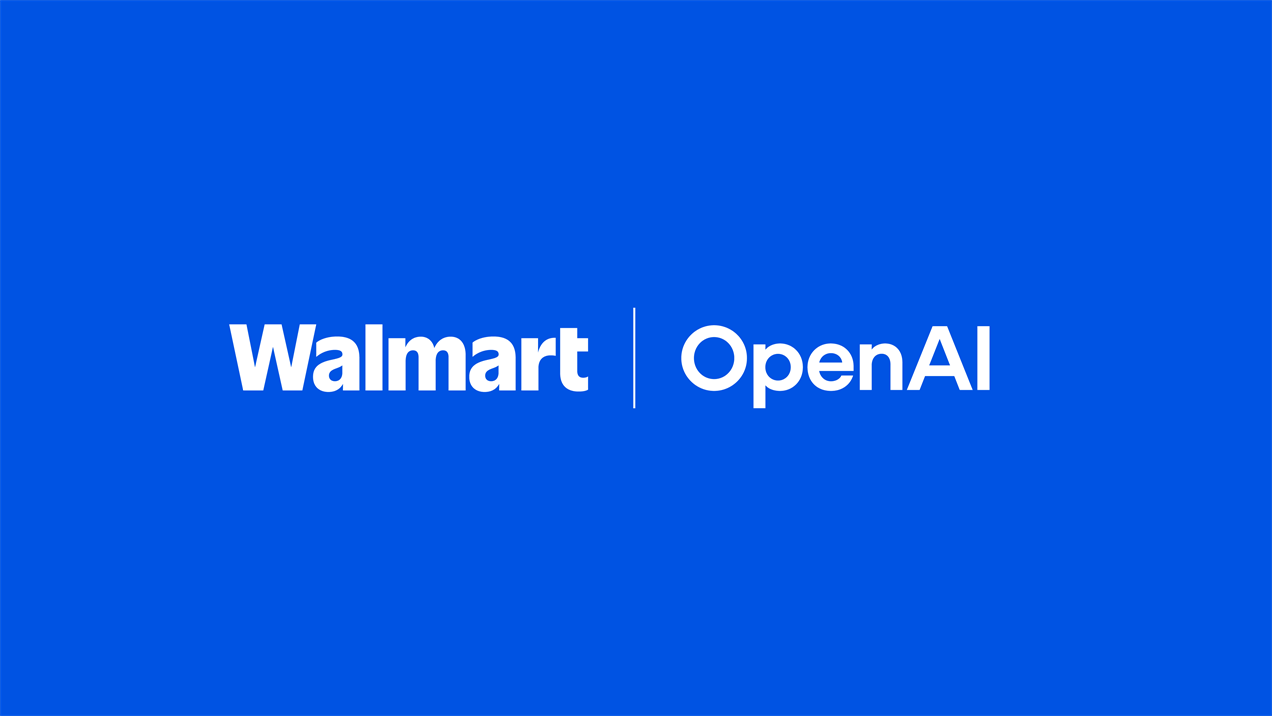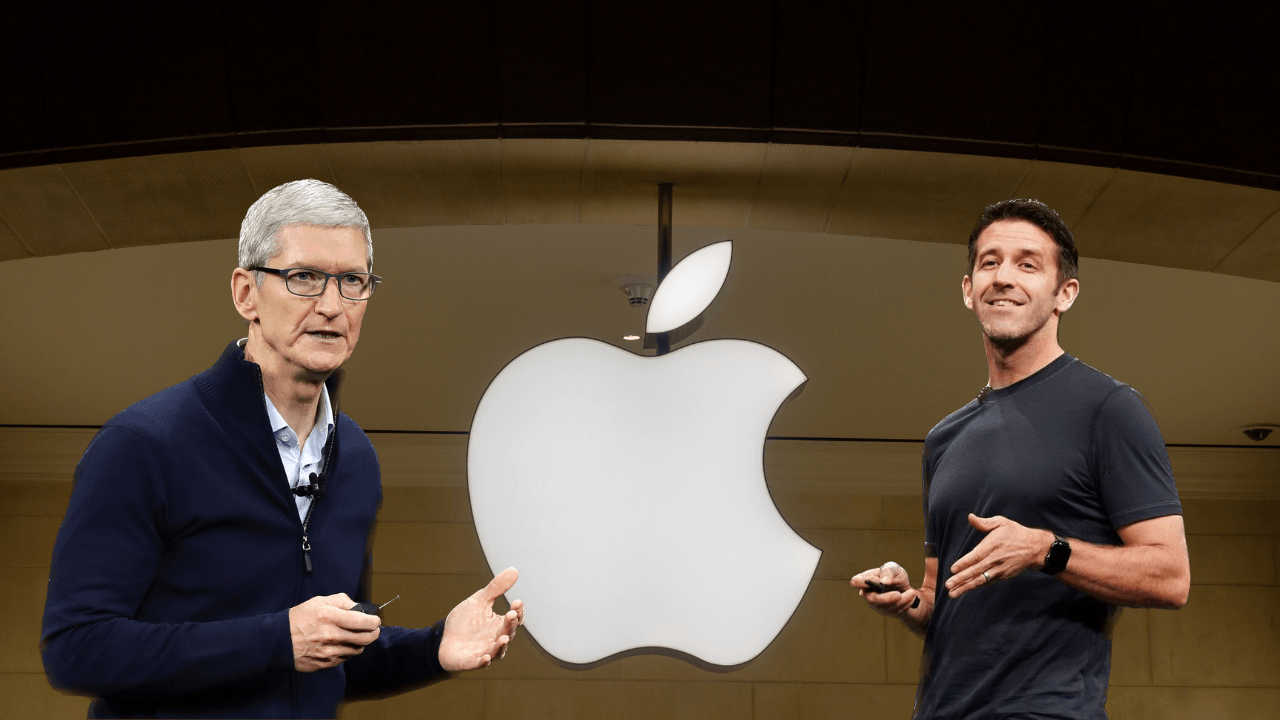Walmart’s AI Bet Sparks Backlash: Innovation Meets Consumer Anxiety

Summary
Walmart’s new partnership with OpenAI marks one of the most ambitious experiments in AI-driven retail to date — integrating ChatGPT directly into its shopping ecosystem through a feature called Instant Checkout. This collaboration aims to transform how people shop: AI will learn consumer preferences, anticipate needs, and complete purchases automatically, blurring the line between decision-making and delegation. Yet this futuristic convenience has triggered a wave of backlash. Many consumers view the partnership as another step toward automation that prioritizes efficiency over employment, deepening fears of job displacement across the retail sector. Social media reactions reveal a split between fascination and distrust — admiration for Walmart’s technological leap colliding with anxiety about corporate control of AI. The controversy underscores a defining tension of our time: as companies race to make life easier through artificial intelligence, the public is asking harder questions about who truly benefits — and who might be left behind.
Walmart’s AI Bet Sparks Backlash: Innovation Meets Consumer Anxiety
Walmart’s latest partnership with OpenAI positions the retail giant at the forefront of AI-driven commerce, promising a future where shopping becomes conversational, predictive, and effortless. Yet behind the buzz, consumers are wrestling with a harder truth: technological progress is colliding with job insecurity.
The Announcement That Lit Up Social Media
On October 14, 2025, Walmart announced its partnership with OpenAI to create AI-first shopping experiences. Customers will soon be able to shop directly through ChatGPT, using a feature called Instant Checkout.
The idea is simple: Walmart wants to move from reactive retail to proactive retail — where AI learns, plans, and predicts what customers need before they even search for it.
But the public’s response shows that excitement about innovation comes with a growing sense of unease.
Sentiment Data: Excitement vs. Fear
In just seven days, the announcement generated 171K mentions and over 2.1M engagements across social media. But beneath the engagement numbers, the tone was polarized:
- 19.9% of mentions were positive, highlighting convenience and innovation.
- 37.9% were negative, reflecting fear of job losses and distrust of corporate AI use.


Consumers increasingly equate “AI-first” strategies with efficiency at the expense of employment, linking Walmart’s move to broader automation anxiety sweeping across the U.S. workforce.
This reaction mirrors wider economic unease, where layoffs tied to automation are eroding trust in large corporations. Sentiment around “AI” has trended downward for months, signaling a fatigue toward headlines that promise convenience but threaten livelihoods.
Walmart’s Vision for AI-Driven Retail
According to Doug McMillon, Walmart’s President and CEO, the company is “running toward a more enjoyable and convenient future” through innovations like Sparky, Walmart’s internal AI engine, and this partnership with OpenAI.
OpenAI’s CEO Sam Altman described the collaboration as a way to make “everyday purchases a little simpler,” framing the move as human-centered innovation rather than automation for profit.
Today, Walmart and Sam’s Club already use AI to:
- Enhance product catalogs and reduce production timelines by up to 18 weeks.
- Improve customer care resolution times by up to 40%.
- Empower employees through AI literacy programs and ChatGPT Enterprise access.
The Trust Gap in Corporate AI
While Walmart emphasizes a “people-led, tech-powered” future, consumers remain cautious. Conversations mentioning “OpenAI” and “ChatGPT” saw roughly 647K mentions and 5M engagements, with sentiment nearly split — 25.4% positive vs. 23.4% negative.
This volatility highlights a key insight: public trust in AI depends on how directly it impacts human livelihoods. When AI serves individuals — as a tool for learning, productivity, or creativity — sentiment stays positive. But when corporations deploy it at scale, skepticism spikes.
The Bigger Picture
Walmart’s partnership with OpenAI represents a major leap forward in agentic commerce — where AI acts autonomously to simplify everyday decisions. Yet for millions of Americans, the excitement about convenience is tempered by concerns over automation, displacement, and transparency.
In the age of AI, the challenge for corporations isn’t just to innovate — it’s to rebuild trust. Consumers will reward brands that communicate how technology enhances, rather than replaces, human value.
Read More

Apple CEO Speculations Intensified as Tim Cook's Future Remained Uncertain
Speculation around Tim Cook’s future as Apple’s CEO has intensified, igniting global debate about who might lead the tech giant into its next era. With over 56,000 online discussions in just 24 hours, consumers voiced both anticipation and anxiety over potential leadership shifts that could reshape Apple’s identity, innovation pace, and pricing strategy. John Ternus, Apple’s hardware chief, has emerged as the most likely successor—praised for his engineering expertise but questioned for his limited exposure to services and AI. As Apple faces new challenges spanning artificial intelligence, regulatory complexity, and global market pressures, the company’s next leader must balance continuity with transformation. The outcome of this succession could redefine not only Apple’s internal direction but also the trajectory of the entire tech industry.
October 17, 2025
READ MORE

ChatGPT Becomes the New Therapist and Dating Coach for U.S. Adults
A growing number of Americans are turning to ChatGPT not just for information, but for intimacy, reflection, and emotional healing. Between September and October 2025, online discussions about using ChatGPT as a therapist and dating coach surged — revealing a cultural shift where artificial intelligence is stepping into deeply personal spaces once reserved for humans. From helping users process grief and heartbreak to coaching singles through modern dating dilemmas, ChatGPT is becoming an emotional companion for a digital generation. As AI evolves from a productivity tool into an empathetic partner, it’s redefining how people connect, communicate, and care — prompting society to question not just what technology can do, but how it makes us feel.
October 16, 2025
READ MORE

How U.S. Consumers Talked About Tariffs in 2025: Wallets, Politics, and Global Tensions
English-speaking Americans largely saw tariffs through the lens of their wallets, describing them as a “hidden tax” driving inflation, while Spanish-speaking voices focused on food security, and U.S.–Brazil–BRICS relations. The digital debate fractured along lines of economics and identity: one camp lamenting higher prices, the other defending tariffs as a show of national strength. Yet across 25 million conversations, both groups arrived at a shared realization — that tariffs aren’t abstract policy levers but forces shaping what people can afford, how nations relate, and who ultimately bears the cost of global tension.
October 14, 2025
READ MORE

Behind the Breakthrough: How RILA GLOBAL CONSULTING Supported a Newly FDA-Approved Oncology Therapy
RILA played a critical role in supporting the recent FDA approval of a breakthrough oncology therapy designed for patients with limited treatment options after first-line chemotherapy. Acting as a strategic insights partner, RILA provided end-to-end intelligence—from identifying and engaging key opinion leaders to conducting patient unmet-needs analysis, complaint listening, and investor relations research. Our integrated approach combined social listening, pharmacovigilance, and competitive intelligence to guide scientific communication, regulatory readiness, and launch strategy. This approval not only represents an important advancement for patients and the oncology community but also highlights how RILA’s data-driven, patient-informed methodologies empower biopharma companies to bring meaningful, evidence-based innovations to market.
October 14, 2025
READ MORE

The Starbucks Effect in Reverse: What Store Closures Reveal About Housing and Community Stability
Once a marker of rising property values and revitalized streets, Starbucks’ retreat now sparks fears of community decline and economic fragility. As residents lament the loss of their local café, they’re really mourning a deeper shift—the unraveling of a familiar urban narrative where growth was measured by the green siren’s glow. In the “Starbucks Effect” reversed, America’s coffee map may be telling a new story about housing, belonging, and the fragile balance between commerce and community.
October 10, 2025
READ MORE

Why Food & Beverage Brands Can’t Ignore TikTok Recipes
The food and beverage industry is no longer shaped solely by glossy ads or in-store promotions — today, viral content and online conversations, especially on platforms like TikTok, drive consumer choices before they ever step into a store or restaurant. Brands that harness social listening and combine it with traditional market research can detect emerging trends, anticipate shifting tastes, and transform fleeting viral moments into lasting growth. At RILA Global Consulting, we turn digital chatter into actionable intelligence, helping companies stay ahead of the curve, innovate products, and craft culturally relevant campaigns that build loyalty and boost sales. In a world where trends can explode overnight, the ability to listen, interpret, and act is the ultimate competitive advantage.
October 3, 2025
READ MORE

How Airlines Can Detect Service Issues Before They Escalate Online
In today’s hyper-digital world, the battle for airline loyalty is no longer fought in loyalty programs or post-flight surveys—it unfolds in real time across TikTok feeds, Twitter threads, and Reddit forums. A single complaint can snowball into a viral crisis, yet the same digital conversations hold the key to preventing service failures and building trust. By merging social listening with market research, airlines can shift from reactive crisis control to proactive service strategy, transforming fleeting frustrations into lasting loyalty. The question is no longer if airlines should listen—it’s whether they can afford not
October 3, 2025
READ MORE

Consumer Insights on Smart Homes and Energy Efficiency
The energy and utilities sector is no longer about static bills and passive consumers—it’s about dynamic, digital-first relationships shaped by real-time conversations. From Reddit threads about thermostats to viral reviews of solar devices, consumers are rewriting the rules of engagement, demanding smarter, greener, and more personalized solutions. Companies that rely only on traditional surveys risk being left behind, while those embracing always-on social listening and market research gain the ability to anticipate needs, spark innovation, and lead the transition toward sustainable living. The question is: will brands continue to react to yesterday’s data, or will they start shaping tomorrow’s energy future today?
October 3, 2025
READ MORE

From Dealerships to TikTok: How Online Conversations Drive Auto Sales
The automotive industry is no longer ruled by showroom floors and brochures; it now thrives in the digital chatter of social media. Platforms like TikTok, Instagram, and Reddit have become the modern dealerships, where viral videos, candid reviews, and peer discussions shape the decisions of an increasingly informed consumer. Brands that harness these online conversations through social listening, analytics, and targeted engagement gain a strategic edge, transforming digital influence into tangible showroom visits and sales. RILA Global Consulting shows that understanding not just what consumers say—but how, where, and when they say it—can redefine the entire car buying journey, turning fleeting social trends into measurable business growth.
September 29, 2025
READ MORE